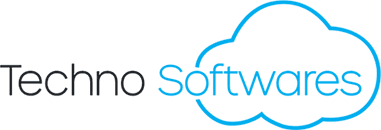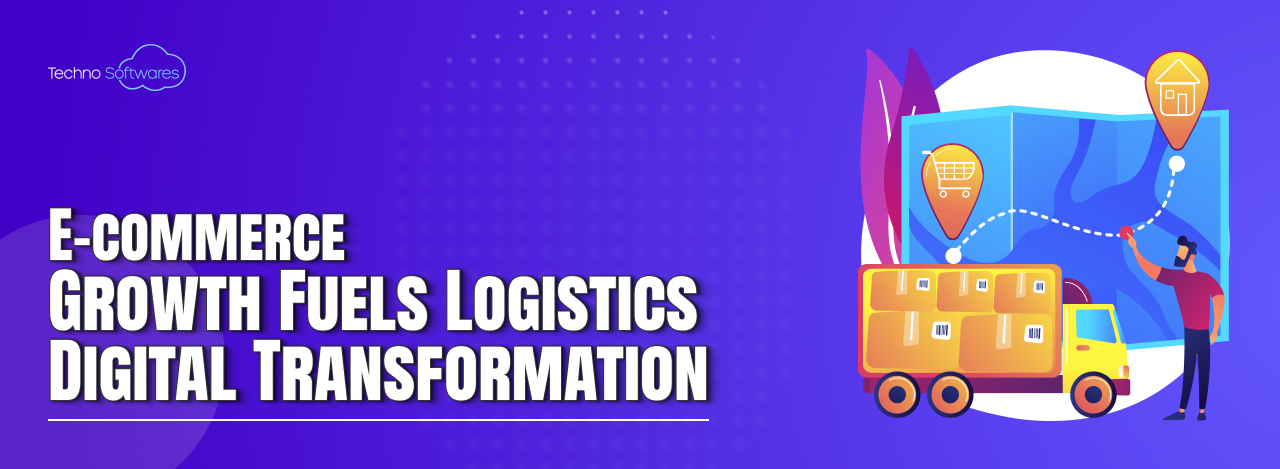How Education Platforms Can Use Web Scraping to Monitor Course Offerings
In the digital age, education platforms have emerged as vital resources for learners and educators alike. These platforms, such as Coursera, Udemy, and edX, offer a plethora of online courses that cater to diverse interests and professional needs. They have democratized access to education, allowing individuals from various backgrounds to enhance their skills and knowledge without the constraints of traditional classroom settings.
The rapid growth of these platforms has led to an increasingly competitive landscape, where understanding course offerings, pricing strategies, and user engagement becomes crucial for success. To navigate this complex environment, education providers and stakeholders are turning to innovative data collection methods. One such method is web scraping, a technique that allows for the automated extraction of information from websites.
By leveraging web scraping, organizations can gather valuable insights about course offerings, pricing trends, and user preferences across various education platforms. This data-driven approach not only aids in strategic decision-making but also enhances the ability to adapt to the ever-evolving educational landscape.
Key Takeaways
- Web scraping is a valuable tool for collecting data from education platforms like Coursera, Udemy, and edX.
- Monitoring course offerings on these platforms is crucial for staying competitive and informed about market trends.
- Web scraping plays a key role in data collection, allowing for efficient and comprehensive analysis of course offerings.
- Utilizing web scraping for competitive analysis provides valuable insights into market trends and competitor strategies.
- Leveraging web scraping for market research and strategy development can give companies a competitive edge in the education industry.
The Importance of Monitoring Course Offerings for Education Platforms
Monitoring course offerings is essential for education platforms to remain competitive and relevant. As new courses are continuously developed and existing ones updated or retired, staying informed about these changes is critical for both platform operators and learners. For instance, a platform that fails to keep track of emerging trends in course content may find itself lagging behind competitors that are more attuned to market demands.
This can lead to a decline in user engagement and ultimately affect revenue streams. Moreover, understanding course offerings allows education platforms to tailor their marketing strategies effectively. By analyzing which courses are gaining traction or which subjects are underrepresented, platforms can make informed decisions about course development and promotional efforts.
For example, if data indicates a rising interest in artificial intelligence courses, a platform might prioritize the creation of new content in that area or enhance existing offerings. This proactive approach not only attracts new users but also retains existing ones by ensuring that their educational needs are met.
Understanding Web Scraping and Its Role in Data Collection

Web scraping is a powerful technique used to extract data from websites automatically. It involves writing scripts or using specialized software to navigate web pages, identify relevant information, and compile it into structured formats such as spreadsheets or databases. This process can be particularly beneficial for education platforms seeking to gather large volumes of data quickly and efficiently.
Unlike manual data collection methods, which can be time-consuming and prone to human error, web scraping allows for real-time data acquisition and analysis. The role of web scraping in data collection extends beyond mere extraction; it also encompasses data cleaning and organization. Once the data is scraped, it often requires processing to ensure accuracy and usability.
This may involve removing duplicates, standardizing formats, or enriching the data with additional context. For education platforms, this means that the insights derived from web-scraped data can be more reliable and actionable, enabling better decision-making regarding course offerings and marketing strategies.
The Benefits of Using Web Scraping for Competitive Analysis
Competitive analysis is a cornerstone of strategic planning for any business, including education platforms. Web scraping provides a unique advantage in this regard by enabling organizations to gather comprehensive data on competitors’ course offerings, pricing structures, and promotional tactics. By analyzing this information, education platforms can identify gaps in their own offerings and capitalize on opportunities that competitors may have overlooked.
For example, if a competitor launches a new course on digital marketing at a competitive price point, an education platform can quickly assess the implications of this move through web scraping. By examining factors such as course content, user reviews, and enrollment numbers, the platform can determine whether it needs to adjust its own course offerings or marketing strategies to maintain its competitive edge. Additionally, web scraping allows for ongoing monitoring of competitors, ensuring that education platforms remain agile and responsive to market changes.
How Techno Softwares Utilizes Web Scraping to Collect Data from Coursera
Techno Softwares has harnessed the power of web scraping to collect valuable data from Coursera, one of the leading online education platforms. By employing advanced scraping techniques, Techno Softwares can extract detailed information about course offerings, including titles, descriptions, instructors, pricing models, and user ratings. This comprehensive dataset enables the company to analyze trends in course popularity and identify emerging subjects that resonate with learners.
The process begins with identifying key pages on Coursera’s website that contain relevant information about courses. Techno Softwares utilizes automated scripts to navigate these pages systematically, ensuring that no critical data points are overlooked. Once the data is collected, it undergoes rigorous cleaning and organization processes to ensure accuracy.
The insights gained from this web-scraped data empower Techno Softwares to make informed decisions regarding its own course development strategies and marketing initiatives.
How Techno Softwares Utilizes Web Scraping to Collect Data from Udemy
In addition to Coursera, Techno Softwares also employs web scraping techniques to gather data from Udemy, another prominent player in the online education space. Udemy’s vast catalog of courses presents a rich source of information for analysis. By scraping Udemy’s website, Techno Softwares can obtain insights into course categories, instructor profiles, pricing variations, and user feedback.
The ability to compare data from multiple platforms like Coursera and Udemy allows Techno Softwares to conduct a more nuanced analysis of market trends. For instance, if Udemy offers a particular course at a significantly lower price than Coursera, this information can inform pricing strategies for Techno Softwares’ own courses. Furthermore, by examining user reviews across both platforms, the company can identify common themes in learner satisfaction or dissatisfaction, guiding improvements in course content and delivery methods.
How Techno Softwares Utilizes Web Scraping to Collect Data from edX
Techno Softwares extends its web scraping capabilities to edX as well, tapping into another rich repository of online courses offered by prestigious institutions worldwide. By extracting data from edX’s platform, Techno Softwares gains insights into high-demand subjects and popular courses among learners seeking quality education from reputable sources. This information is invaluable for shaping the company’s own course offerings.
The scraping process involves targeting specific sections of edX’s website where course details are listed. Techno Softwares employs sophisticated algorithms that not only extract basic information but also analyze metadata such as enrollment numbers and completion rates. This level of detail allows the company to assess which courses are most effective in engaging learners and achieving educational outcomes.
By leveraging this data-driven approach, Techno Softwares can align its course development efforts with market demands while ensuring high-quality educational experiences.
Analyzing and Comparing Course Offerings Using Web Scraped Data
Once the data has been collected from various education platforms through web scraping, the next step involves thorough analysis and comparison of course offerings. This process entails examining key metrics such as course popularity, pricing trends, user ratings, and subject matter diversity across different platforms. By synthesizing this information into comprehensive reports or dashboards, education providers can gain a holistic view of the competitive landscape.
For instance, an analysis might reveal that certain subjects are oversaturated with offerings on one platform while being underrepresented on another. This insight could prompt an education provider to develop new courses in those underserved areas or adjust pricing strategies based on competitor pricing models. Additionally, comparing user feedback across platforms can highlight strengths and weaknesses in course delivery methods or content quality.
Such analyses empower education providers to make informed decisions that enhance their market positioning.
Leveraging Web Scraping for Market Research and Strategy Development
Web scraping serves as a powerful tool for market research and strategy development within the education sector. By continuously monitoring competitors’ course offerings and pricing strategies through automated scraping processes, education providers can stay ahead of industry trends and adapt their strategies accordingly. This proactive approach enables organizations to identify emerging opportunities before they become mainstream.
For example, if web scraping reveals a growing interest in niche subjects such as blockchain technology or sustainable development within online learning communities, an education provider can quickly pivot its course development efforts to capitalize on this trend. Furthermore, insights gained from user reviews can inform marketing strategies by highlighting features that resonate with learners or areas where improvements are needed. Ultimately, leveraging web-scraped data allows education providers to make strategic decisions grounded in real-time market intelligence.
Overcoming Challenges and Ethical Considerations in Web Scraping for Education Platforms
While web scraping offers numerous advantages for data collection in the education sector, it is not without its challenges and ethical considerations. One significant challenge is ensuring compliance with website terms of service; many platforms have restrictions on automated data extraction methods. Education providers must navigate these legal frameworks carefully to avoid potential repercussions.
Ethical considerations also come into play when collecting user-generated content such as reviews or ratings. It is essential for organizations to respect user privacy and adhere to data protection regulations when handling personal information. Additionally, transparency about how scraped data will be used can foster trust among users and stakeholders alike.
By addressing these challenges proactively and ethically, education providers can harness the benefits of web scraping while maintaining integrity in their operations.
The Future of Education Platforms and Web Scraping for Course Monitoring
As the landscape of online education continues to evolve rapidly, the role of web scraping in monitoring course offerings will likely become even more pronounced. Education platforms that embrace data-driven decision-making through web scraping will be better positioned to adapt to changing market dynamics and meet the needs of learners effectively. The ability to gather real-time insights into competitor offerings will empower organizations to innovate continuously while enhancing user experiences.
In this context, companies like Techno Softwares exemplify how leveraging web scraping can lead to informed strategic decisions that drive growth in the competitive online education sector. As technology advances further and ethical frameworks around data collection evolve, the future promises exciting possibilities for education platforms willing to embrace these methodologies for continuous improvement and success.
Techno Softwares offers a variety of services, including web scraping to monitor course offerings on education platforms like Coursera, Udemy, and edX. In a related article, they discuss the differences between Proof of Concept (POC), Minimum Viable Product (MVP), and Prototype development strategies here. They also provide insights on designing mobile UI here and highlight the top features of modern travel portals here. Techno Softwares’ expertise in data collection and analysis can help businesses stay competitive in the ever-evolving digital landscape.
Get Scraping Service (FREE Demo)
FAQs
What is web scraping?
Web scraping is the process of extracting data from websites. It involves using automated tools to gather information from web pages and then organizing that data into a usable format.
How can education platforms use web scraping to monitor course offerings?
Education platforms can use web scraping to monitor course offerings by collecting data from various online learning platforms such as Coursera, Udemy, and edX. This data can then be used for competitive analysis, market research, and to gain insights into the latest trends in online education.
What kind of data can be collected from Coursera, Udemy, and edX using web scraping?
Using web scraping, data such as course titles, descriptions, instructors, pricing, ratings, and enrollment numbers can be collected from Coursera, Udemy, and edX. This data can provide valuable insights into the types of courses being offered, their popularity, and the competitive landscape.
How can Techno Softwares help in collecting data from Coursera, Udemy, and edX for competitive analysis?
Techno Softwares can develop custom web scraping tools to collect data from Coursera, Udemy, and edX. These tools can be tailored to extract specific data points that are relevant to the client’s needs, and the collected data can be organized and analyzed to provide valuable insights for competitive analysis.





